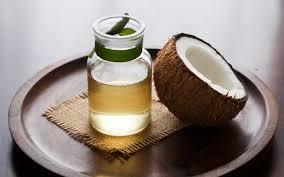How To Choose The Best Dog Supplements

Over 65% of the population takes some form of daily dietary supplement for a range of different reasons. Some of us use supplements to boost our performance, others to fill in any gaps in nutrition or to combat natural deficiencies in our bodies.
As supplements continue to help improve the lives of millions around the world and people get more clued up on the benefits of nutrition, what about our four-legged best friends?
If humans, the smartest animals on the planet, still occasionally need to use supplements to live our best lives, what about our pets? Don't they deserve the same help?
Supplements for dogs are getting better and better every day, and as more research is carried out, we are learning how we can give our dogs the best possible chance at a full and healthy life.
The problem is with any supplementation is that there are lots of products out there that boast outrageous claims, utilizing under-studied or under-dosed ingredients.
In this article, we are going to delve into the science behind some of the ingredients that have been proven to work. That way, you know what ingredients to look for.
If you are unsure what supplement is best for your pooch, by the end of this article, you should be well informed.
Armed with this knowledge, you will be able to spend your money on the supplements that work. A healthy dog is a happy dog, after all.
Does my Dog Need a Supplement?
 In the ideal world, we would feed our dogs only the finest grass-fed meats, organic vegetables, and purified glacier water from atop a mountain. Unfortunately, in the real world, most of us turn to traditional dog food.
In the ideal world, we would feed our dogs only the finest grass-fed meats, organic vegetables, and purified glacier water from atop a mountain. Unfortunately, in the real world, most of us turn to traditional dog food.
Normal dog food ranges in quality and nutritional value, but most of them are designed to give your dog all of the nutrients and vitamins they need. Picking a high-quality brand is crucial, even if it can be expensive. The trade-off is a happier, healthier dog and lower veterinarian bills; I'm sure you agree that's a worthy trade-off.
Just like humans, though, every dog is different, and as they age, they may develop deficiencies or health problems.
All of the following ingredients are proven to have positive benefits for canine health, but we always recommend seeking the help of a skilled pet nutritionist or veterinarian if you think your best buddy is acting tired or a little strange.
Supplementation is a great way to improve your dog's health but should always be seen as a proactive approach rather than a reactive one. Supplements for dogs can help prevent illnesses and problems in advance, but you should always act with care. You have complete control over what your pet eats, be it good or bad.
For this reason, it is always a good idea to seek the advice of your local vets when implementing a new diet or supplement for dogs.
The Best Supplements for Dogs (Backed by Science)
The following is a list of ingredients that have been proven through research and science to actually work. We are going to examine them each in detail and discuss what role they have in your canine's health.
Glucosamine

One of the most common ailments that could affect your pooch as they age is Osteoarthritis, a disease that causes pain and discomfort as well as a lack of full mobility.
Glucosamine is a naturally occurring chemical found in both the bodies of humans and dogs. In the body, it is used as a building block for lots of important functions. The most important of these functions is the ability to repair and maintain healthy tendons, ligaments, cartilage, and the fluid which surrounds the joints.
When Osteoarthritis strikes, the fluid that cushions your dog's joints will begin to thin. This means that there is less absorption of shock and more friction. This leads to muscle stiffness and pain.
In a randomized, double-blind controlled study, 35 dogs with Osteoarthritis were given Glucosamine and examined over a period of 98 days. (1)
Across the board, the treatment caused a significant improvement in pain and ability to bear weight on afflicted joints.
Glucosamine is a great supplement for dogs that are showing symptoms of joint pain. It also makes the perfect addition after surgery and can speed up recovery times following injuries.
It is, however, sugar-based. This makes it a poor supplement for dogs with diabetes. Some brands utilize synthesized glucosamine that is created using a blend of shellfish shells. If you or your dog are allergic to shellfish, stay clear of these.
Good For: Joint Pain, After Surgery Care, Osteoarthritis.
Bad For: Dogs with Diabetes, May Contain Shellfish
Probiotics

Inside your dog's gut live billions of tiny bacteria. Some of them good, some of them bad. These bacteria are responsible for helping break down foods and help your dog absorb vitamins and minerals from the food they eat.
Sometimes, something happens that causes this balance of good and bad bacteria to shift. When the bad bacteria take over, the good bacteria can die off, leading to digestive problems ranging from discomfort and pain to diarrhea or worse.
One major cause of this is when we treat our pets with an antibiotic. Whilst this stops the illness, it can throw the whole microbiome off balance.
By supplementing with probiotics, you can feed your dog's gut with living healthy "Good" bacteria that will grow and eventually rebalance the delicate microbiome inside your pet's stomach.
One study looked at 36 dogs that were suffering from acute diarrhea and vomiting. Half were given a placebo, the other half a probiotic containing live strains of Pediococcus Acidilactici, Bacillus subtilis, Bacillus Licheniformis, and Lactobacillus Farciminis. (2)
In the group that took the probiotic, the amount of time it took for the dogs to return to normal bowel movements and stool consistency was much shorter.
This means that a probiotic could be a great supplement for dogs who are suffering from stomach problems.
Probiotics also inhibit the growth of bad bacteria, meaning your dog will have a better chance of avoiding nasty bacteria like E.Coli.
Unfortunately, probiotics do have the potential to cause irritation in the gut, although this is rare.
Each dog will react differently. So make sure you coordinate with your vet and keep a close eye on your furry friend if you have decided to introduce a probiotic to their diet in case of a bad reaction.
Good For: Improving Digestion, Improving Stool Quality, and Consistency, Restoring Microbiome Balance
Bad For: Could cause digestive issues in certain dogs, especially when the dosage is too high.
Pumpkin - For Fiber

Dietary fiber is really important for digestion and the promotion of healthy bowel movements in our dogs. When they are getting the right vitamins and minerals and are eating a healthy, well-rounded diet, they will need fiber to help boost their digestive health.
This is one of the reasons why Pumpkin is often used to treat diarrhea or constipation in pets. Adding one tablespoon of Pumpkin to their regular feed and working up in increments of one tablespoon at a time is the best way to do this. For most dogs, two helpings of Pumpkin a day is the maximum you should allow.
Studies have concluded that there is evidence that that additional fiber supplements for dogs can increase the overall health status of your pet. (3)
Pumpkin is one of the most highly nutritious vegetables on the planet. With an extremely high nutrient and vitamin content and as a powerful anti-oxidant, Pumpkin is also very well tolerated by most breeds of dogs.
Pumpkins are rich in Vitamin E and potassium too. Vitamin E improves skin promotes a strong thick coat, and potassium helps your dog maintain muscle mass and strength.
Pumpkins also contain two compounds caused lutein and zeaxanthin. These compounds have been linked to lower risks of cataracts and eye problems. (4)
Finally, Pumpkin is a great addition for dogs who are getting a little bit plump. With a low-calorie count and high fiber, as well as being tasty and easy to digest, it is the perfect supplement for the overweight pooch. Just make sure they have plenty of water to stop your dog from dehydrating.
Good For: Curing Diarrhea, Improving Skin and Fur Quality, Increasing Muscle Mass, Reducing Fat, and Improving Eye Health
Bad For: When a dog eats too much Pumpkin, they may get dehydrated, so make sure they are drinking plenty of water. High levels of vitamin A can be toxic, so don't overfeed your dog's Pumpkin. (1-2 Tablespoons per day for a Medium-Large Dog, To treat Diarrhea, you can increase this temporarily.)
Turmeric - Anti-Inflammatory

Tumeric is a well-researched compound with a range of benefits for both humans and animals.
When taken as a supplement, Tumeric can be used as a substitute for Non-Steroidal Anti-Inflammatory Drugs like ibuprofen, which can often cause negative side effects when taken orally. Older dogs, in particular, are more likely to have problems when taking these kinds of drugs.
Tumeric stimulates your dog's production of bile in the liver. This makes digesting fats a lot easier.
One study published in the international Veterinary journey shows that Tumeric works as a great anti-inflammatory, reducing pain and inflammation in dogs that suffer from problems like Osteoarthritis. (5)
This study was further backed up by another study conducted in 2009 with horses. In this study, the team found the Tumeric suppressed the body's production of cytokines, which are a root cause of inflammation. (6)
To gain these positive effects, you should give your dog a small amount of Tumeric every single day, as the benefits only happen once levels have been built up inside your dogs' system.
For small to medium dogs, a quarter to a half of a teaspoon per day is perfect. For larger dogs, 1 full tablespoon should be your limit.
As always, keep your eyes on your pooch during the first few days trialing anything new. A happy dog tends to be a healthy dog, so monitor their energy and mood levels and adjust the dosage accordingly.
Good For: Major Anti-Inflammatory. Can be used in the place of NSAIDs (Non-Steroidal Anti-Inflammatory Drugs) in minor cases. Can be used to complement NSAIDS in more severe cases of Osteoarthritis and over joint-related illnesses.
Bad For: Dogs that suffer from kidney stones should not take Tumeric due to the increased oxalate levels. This can make the formation of kidney stones more likely.
Omega-3's (Fish Oil)
 Fish Oil contains Omega 3 fatty acids that are a crucial building block in the membranes of the cells in your dog's body. They are necessary for hormone production and your body uses them to regulate inflammation in the body. Omega-3s are also important for maintaining a healthy coat and healthy skin. (7)
Fish Oil contains Omega 3 fatty acids that are a crucial building block in the membranes of the cells in your dog's body. They are necessary for hormone production and your body uses them to regulate inflammation in the body. Omega-3s are also important for maintaining a healthy coat and healthy skin. (7)
There are three common Omega-3 fatty acids:
EPA - Eicosapentaenoic Acid is mainly found in fatty fish.
DHA - Docosahexaenoic Acid is found in algae and fatty fish.
ALA - Alpha-linolenic Acid is the most common of the three and is found in a number of vegetable oils, leafy green veg, and grass-fed meat.
By giving your dog a healthy amount of these crucial omega-3 acids, you can help lower blood pressure and heart rate. You also get a reduction in cardiovascular disease and inflammation around the body.
Omega-3's become especially important for both older dogs and dogs recovering from surgery or injury as they provide both anti-inflammatory properties and actively promote cell repair whilst simultaneously boosting the immune system.
If your dog is not getting enough Omega-3 from their diet, the symptoms can show in a number of ways. Their coat might seem dull; they could start losing hair, gain fat or recover slowly from an injury or wound.
A good omega-3 supplement containing DHA, EPA, and ALA is a great way to ensure your dog's general wellbeing. In fact, one study has shown that puppies who have an omega-3 rich diet during their younger years have better memory, learning ability, and cognitive function as they get older. (8)(9)
Good For: Amazing Anti-Inflammatory, Good For Brain Health and Development. Reduces the risk of heart disease and cardiovascular problems.
Bad For: Overdosing your dog with Omega-3 can lead to vomiting and diarrhea, and weight gain. (Check this page for recommended dosage for your dog's size)
Cranberry - Preventing UTIs

Urinary Tract Infections or UTIs are a common problem for dogs, especially females who have been spayed. These infections happen when nasty bacteria manage to find their way into your dog's urinary tract, bladder, or urethra.
Bacteria like this thrive in urine that has a high pH level. To bring this pH level down from alkaline to neutral, cranberry can be an effective supplement due to its acidic composition.
UTI's are serious matters. On rare occasions, the bacteria involved can spread to the kidneys, potentially causing failure.
Please note, Cranberries are a great preventative. By this, we mean that giving your dog a cranberry supplement will decrease the likelihood of a UTI. If your dog already has a UTI, you should seek medical help as your dog will most likely need antibiotics, and there is little evidence to suggest that the use of Cranberries can cure a UTI without antibiotics. (10)
Coconut Oil

Coconut oil is becoming increasingly popular for dogs due to its anti-bacterial and anti-inflammatory properties. It contains high amounts of Lauric Acid, which is responsible for most of these effects and is effective at fighting off viruses, pathogens, and fungi. (11) Coconut oil also contains MCT, which aids digestion and improves mental function in older dogs.
Adverse reactions to coconut oil are rare. However, high concentrations fed to dogs may cause high cholesterol. It also has a high-calorie content and so it may not be suitable for overweight dogs.
Good For: Improving Digestion, Reducing Inflammation, Fighting Off Viruses.
Bad For: High in calories and not good for dogs with high cholesterol.
Avoid Carnivore Style Diets!

Many dog owners think that dogs are natural carnivores. They think that feeding their pets a diet of 100% meat is the healthiest way to go.
In reality, dogs are omnivores. This means they get their energy and nutritional needs from not only meat but grains, vegetables, and even fruit.
Certain important vitamins, fiber, and minerals cannot be found purely in meat. If your dog does not get these from their diet or supplementation, they are going to start having problems.
FAQ:
Q: What are the Best Supplements to Give Dogs?
A: Different dogs have different diets and different genetics. The best vitamins and supplements for dogs will be the ones that they need to maintain a healthy balance. Some dogs might need extra Omega-3's; some might need no supplementation at all. Work with your local vet or pet nutritionist to keep on top of any symptoms of an unhappy dog, such as vomiting, fur shedding, scratching, or rapid weight loss/gain.
Q: What Supplements do Vets Recommend?
A: Your local vet will want your dog to be getting all they need from a healthy, well-balanced diet. If you are providing your dog with this kind of diet, deficiencies should quickly become obvious. When your little friend is acting strangely or showing symptoms of stress, a vet will be able to diagnose them more effectively and suggest the best supplement to help.
Q: What Vitamins Should I Give My Dog Daily?
A: If your dog is healthy and getting a well-balanced diet, they should have ample amounts of:
- Vitamin A
- Vitamin D
- Vitamin E
- Vitamin K
- B-complex vitamins
- Calcium
- Phosphorus
- Water
- Fiber
- Linoleic acid
- Omega-6
- Omega-3
Q: Are Dog Vitamins and Supplements Necessary?
A: With the right diet, your dog should be able to get all of the essential vitamins and minerals they need to function from food alone. Dogs are just like humans, though, and sometimes, they require a little help. Supplementation can help you ensure that your dog is getting everything he or she needs to be healthy, happy, and full of energy.`
Final Food for Thought
 Dogs are as individual as we are. What works for one dog owner might not work for another. As a responsible dog owner, the best way to show your love for your furry friend is to keep track of their diet. You should also try to foster a good relationship with the local vet. When something goes wrong, they will be the ones who can give you the best advice when you most need it, and having a good knowledge of your pet's nutrition could be massively important.
Dogs are as individual as we are. What works for one dog owner might not work for another. As a responsible dog owner, the best way to show your love for your furry friend is to keep track of their diet. You should also try to foster a good relationship with the local vet. When something goes wrong, they will be the ones who can give you the best advice when you most need it, and having a good knowledge of your pet's nutrition could be massively important.
References
(1) McCarthy G, O'Donovan J, Jones B, McAllister H, Seed M, Mooney C. Randomised double-blind, positive-controlled trial to assess the efficacy of glucosamine/chondroitin sulfate for the treatment of dogs with osteoarthritis. Vet J. 2007 Jul;174(1):54-61. doi: 10.1016/j.tvjl.2006.02.015. Epub 2006 May 2. PMID: 16647870.
(2) Silke Salavati Schmitz, Value of Probiotics in Canine and Feline Gastroenterology, Veterinary Clinics of North America: Small Animal Practice, 10.1016/j.cvsm.2020.09.011, 51, 1, (171-217), (2021).
(3) de Godoy MR, Kerr KR, Fahey GC Jr. Alternative dietary fiber sources in companion animal nutrition. Nutrients. 2013;5(8):3099-3117. Published 2013 Aug 6. doi:10.3390/nu5083099
(4) Wang ZX, Dong PC, Sun TT, Xu XR, Ma L, Huang YM, Lin XM. [Comparison of lutein, zeaxanthin, and β-carotene level in raw and cooked foods consumed in Beijing]. Zhonghua Yu Fang Yi Xue Za Zhi. 2011 Jan;45(1):64-7. Chinese. PMID: 21418822.
(5) M. Colitti, B. Gaspardo, A. Della Pria, C. Scaini, Bruno Stefanon, Transcriptome modification of white blood cells after dietary administration of curcumin and non-steroidal anti-inflammatory drug in osteoarthritic affected dogs, Veterinary Immunology and Immunopathology, Volume 147, Issues 3–4, 2012, Pages 136-146, ISSN 0165-2427, https://doi.org/10.1016/j.vetimm.2012.04.001.
(6) Maura Farinacci, Brigitta Gaspardo, Monica Colitti & Bruno Stefanon (2009) Dietary administration of Curcumin modifies transcriptional profile of genes involved in inflammatory cascade in horse leukocytes, Italian Journal of Animal Science, 8:sup2, 84-86, DOI: 10.4081/ijas.2009.s2.84
(7) Willett WC. The role of dietary n-6 fatty acids in the prevention of cardiovascular disease. J Cardiovasc Med (Hagerstown). 2007 Sep;8 Suppl 1:S42-5. doi: 10.2459/01.JCM.0000289275.72556.13. PMID: 17876199.
(8) Oberbauer, A. M., Daniels, R., Levy, K., Famula, T. R., Mundell, P., & Kelley, R. (2018). Maternal omega-3 polyunsaturated fatty acid supplementation on offspring hip joint conformation. PloS one, 13(8), e0202157. https://doi.org/10.1371/journal.pone.0202157
(9) Zicker, S., Jewell, D., Yamka, R., & Milgram, N. (2012). Evaluation of cognitive learning, memory, psychomotor, immunologic, and retinal functions in healthy puppies fed foods fortified with docosahexaenoic acid-rich fish oil from 8 to 52 weeks of age. Journal Of The American Veterinary Medical Association, 241(5), 583-594. doi: 10.2460/javma.241.5.583
(10) Hisano M, Bruschini H, Nicodemo AC, Srougi M. Cranberries and lower urinary tract infection prevention. Clinics (Sao Paulo). 2012;67(6):661-668. doi:10.6061/clinics/2012(06)18
(11) Kabara, J. J., Swieczkowski, D. M., Conley, A. J., & Truant, J. P. (1972). Fatty acids and derivatives as antimicrobial agents. Antimicrobial agents and chemotherapy, 2(1), 23–28. https://doi.org/10.1128/AAC.2.1.23
